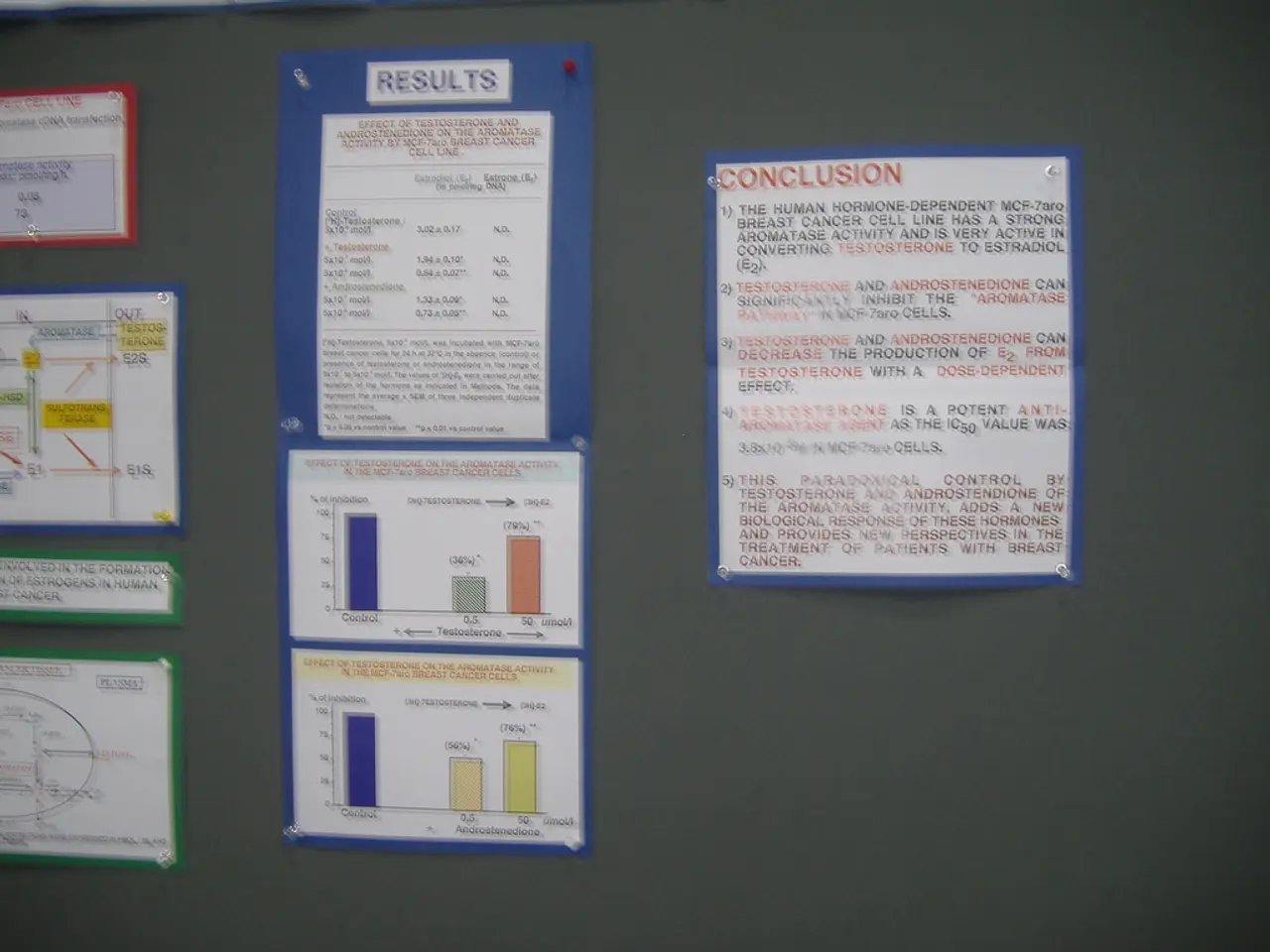Reducing Cash ISA Allocation: Proposed Move by Reeves
The UK Treasury is planning to reduce the tax-free Cash ISA allowance, aiming to encourage savers to shift funds from low-yield Cash ISAs into Stocks and Shares ISAs. The proposed change, expected to be announced by the Chancellor in an upcoming Mansion House speech, would limit the amount savers can put into Cash ISAs annually, potentially between £4,000 and £10,000, while maintaining the overall £20,000 ISA allowance unchanged.
The rationale behind the cut is twofold. Firstly, the government hopes to support the UK stock market and economy by increasing investment activity, as investments tend to outperform inflation over the long term compared to cash savings. Secondly, the move aims to focus taxpayers' money effectively on UK companies.
However, the proposed change has sparked concerns among savers and financial experts, who question its potential impact on those who prefer the security and certainty of Cash ISAs. Many savers, especially older individuals and those approaching retirement, value low risk and easy access over market fluctuations. Forcing them to invest could expose them to unwanted risk or discourage saving altogether.
The reduction might push risk-averse savers towards less suitable or riskier products outside the ISA framework, undermining their financial security and confidence. Banks and building societies, which use funds from Cash ISAs for lending, warn that a cut could reduce available funds and potentially increase borrowing costs or affect mortgage affordability.
Skepticism exists about whether increased Stocks and Shares ISA investments would predominantly benefit UK businesses. There is no current requirement for ISA stock investments to be UK-focused, and some experts suggest that simply cutting the Cash ISA limit without addressing behavioural barriers to investing may not effectively increase stock market participation.
A "carrot not stick" approach, focusing on encouragement and education, might be more effective, according to Sarah Coles, head of personal finance at Hargreaves Lansdown. Michael Summergill, the boss of investment platform AJ Bell, is fundamentally opposed to reducing the amount savers can hold in cash Isas.
The debate highlights a tension between encouraging investment and protecting those who prioritize stability and accessibility in their savings. The impact on UK capital markets and savers will depend on the balance between these competing interests and the details of the policy implementation.
It is worth noting that past changes to Cash ISA limits have influenced saver behaviour notably. For example, after the 2014 budget increase allowing full ISA allowance into cash, subscriptions to Cash ISAs surged, highlighting the strong preference for cash savings despite low interest rates.
The £300bn pool of tax-free cash savings could provide much-needed investment to UK companies. The Treasury did not immediately respond to a request for comment regarding the potential change to the cash Isa allowance. The move is part of an effort to revitalize the UK's ailing capital markets. Investment firm IG Group recently launched a "Save our Stock market" initiative, which includes the proposal to scrap the cash Isa altogether.
- The UK Treasury's plan to reduce the tax-free Cash ISA allowance could encourage investors to shift funds from low-yield Cash ISAs into Stocks and Shares ISAs, supporting the UK stock market and economy by increasing investment activity.
- The reduction might push risk-averse savers towards less suitable or riskier products outside the ISA framework, potentially undermining their financial security and confidence, and affecting mortgage affordability for banks and building societies.
- Some experts question the potential benefits of increased Stocks and Shares ISA investments for UK businesses, as there is no current requirement for ISA stock investments to be UK-focused, and simply cutting the Cash ISA limit might not effectively increase stock market participation.
- Investment firm IG Group recently proposed the scrapping of the cash Isa altogether as a part of their "Save our Stock market" initiative, highlighting the tension between encouraging investment and protecting those who prioritize stability and accessibility in their savings.




